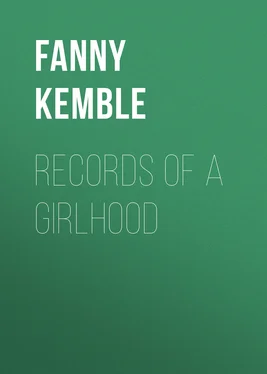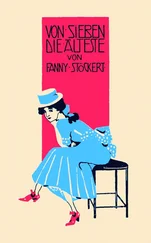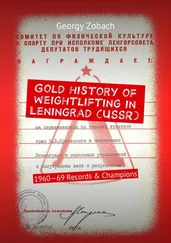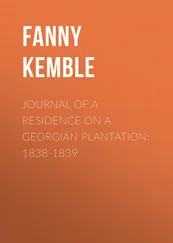Fanny Kemble - Records of a Girlhood
Здесь есть возможность читать онлайн «Fanny Kemble - Records of a Girlhood» — ознакомительный отрывок электронной книги совершенно бесплатно, а после прочтения отрывка купить полную версию. В некоторых случаях можно слушать аудио, скачать через торрент в формате fb2 и присутствует краткое содержание. Жанр: foreign_prose, foreign_antique, на английском языке. Описание произведения, (предисловие) а так же отзывы посетителей доступны на портале библиотеки ЛибКат.
- Название:Records of a Girlhood
- Автор:
- Жанр:
- Год:неизвестен
- ISBN:нет данных
- Рейтинг книги:4 / 5. Голосов: 1
-
Избранное:Добавить в избранное
- Отзывы:
-
Ваша оценка:
- 80
- 1
- 2
- 3
- 4
- 5
Records of a Girlhood: краткое содержание, описание и аннотация
Предлагаем к чтению аннотацию, описание, краткое содержание или предисловие (зависит от того, что написал сам автор книги «Records of a Girlhood»). Если вы не нашли необходимую информацию о книге — напишите в комментариях, мы постараемся отыскать её.
Records of a Girlhood — читать онлайн ознакомительный отрывок
Ниже представлен текст книги, разбитый по страницам. Система сохранения места последней прочитанной страницы, позволяет с удобством читать онлайн бесплатно книгу «Records of a Girlhood», без необходимости каждый раз заново искать на чём Вы остановились. Поставьте закладку, и сможете в любой момент перейти на страницу, на которой закончили чтение.
Интервал:
Закладка:
While we were living in Gerard Street, my uncle Kemble came for a short time to London from Lausanne, where he had fixed his residence—compelled to live abroad, under penalty of seeing the private fortune he had realized by a long life of hard professional labor swept into the ruin which had fallen upon Covent Garden Theatre, of which he was part proprietor. And I always associate this my only recollection of his venerable white hair and beautiful face, full of an expression of most benign dignity, with the earliest mention I remember of that luckless property, which weighed like an incubus upon my father all his life, and the ruinous burden of which both I and my sister successively endeavored in vain to prop.
My mother at this time gave lessons in acting to a few young women who were preparing themselves for the stage; and I recollect very well the admiration my uncle expressed for the beauty of one of them, an extremely handsome Miss Dance, who, I think, came out successfully, but soon married, and relinquished her profession.
This young lady was the daughter of a violinist and musical composer, whose name has a place in my memory from seeing it on a pretty musical setting for the voice of some remarkably beautiful verses, the author of which I have never been able to discover. I heard they had been taken out of that old-fashioned receptacle for stray poetical gems, the poet's corner of a country newspaper. I write them here as accurately as I can from memory; it is more than fifty years since I learnt them, and I have never met with any copy of them but that contained in the old music sheet of Mr. Dance's duet.
Now on their couch of rest
Mortals are sleeping,
While in dark, dewy vest,
Flowerets are weeping.
Ere the last star of night
Fades in the fountain,
My finger of rosy light
Touches the mountain.
Far on his filmy wing
Twilight is wending,
Shadows encompassing,
Terrors attending:
While my foot's fiery print,
Up my path showing,
Gleams with celestial tint.
Brilliantly glowing,
Now from my pinions fair
Freshness is streaming,
And from my yellow hair
Glories are gleaming.
Nature with pure delight
Hails my returning,
And Sol, from his chamber bright,
Crowns the young morning.
My uncle John returned to Switzerland, and I never saw him again; he had made over his share of Covent Garden to my father, and went back to live and die in peace at his Beau Site on the Lake of Geneva.
The first time that I visited Lausanne I went to his grave, and found it in the old burial-ground above the town, where I wonder the dead have patience to lie still, for the glorious beauty of the view their resting-place commands. It was one among a row of graves with broad, flat tombstones bearing English names, and surrounded with iron railings, and flowers more or less running wild.
My father received the property my uncle transferred to him with cheerful courage, and not without sanguine hopes of retrieving its fortunes: instead of which, it destroyed his and those of his family; who, had he and they been untrammelled by the fatal obligation of working for a hopelessly ruined concern, might have turned their labors to far better personal account. Of the eighty thousand pounds which my uncle sank in building Covent Garden, and all the years of toil my father and myself and my sister sank in endeavoring to sustain it, nothing remained to us at my father's death; not even the ownership of the only thing I ever valued the property for,—the private box which belonged to us, the yearly rent of which was valued at three hundred pounds, and the possession of which procured us for several years many evenings of much enjoyment.
The only other recollection I have connected with Gerard Street is that of certain passages from "Paradise Lost," read to me by my father, the sonorous melody of which so enchanted me, that for many years of my life Milton was to me incomparably the first of English poets; though at this time of my earliest acquaintance with him, Walter Scott had precedence over him, and was undoubtedly in my opinion greatest of mortal and immortal bards. His "Marmion" and "Lay of the Last Minstrel" were already familiar to me. Of Shakespeare at this time, and for many subsequent years, I knew not a single line.
While our lodging in town was principally inhabited by my father and resorted to by my mother as a convenience, my aunt Dall, and we children, had our home at my mother's rus in urbe , Craven Hill, where we remained until I went again to school in France.
Our next door neighbors were, on one side, a handsome, dashing Mrs. Blackshaw, sister of George the Fourth's favorite, Beau Brummel, whose daughters were good friends of ours; and on the other Belzoni, the Egyptian traveller, and his wife, with whom we were well acquainted. The wall that separated our gardens was upwards of six feet high,—it reached above my father's head, who was full six feet tall,—but our colossal friend, the Italian, looked down upon us over it quite easily, his large handsome face showing well above it, down to his magnificent auburn beard, which in those less hirsute days than these he seldom exhibited, except in the privacy of his own back garden, where he used occasionally to display it, to our immense delight and astonishment. Great, too, was our satisfaction in visiting Madame Belzoni, who used to receive us in rooms full of strange spoils, brought back by herself and her husband from the East; she sometimes smoked a long Turkish pipe, and generally wore a dark blue sort of caftan, with a white turban on her head. Another of our neighbors here was Latour, the musical composer, to whom, though he was personally good-natured and kind to me, I owe a grudge, for the sake of his "Music for Young Persons," and only regret that he was not our next-door neighbor, when he would have execrated his own "O Dolce Concerto," and "Sul Margine d'un Rio," and all his innumerable progeny of variations for two hands and four hands, as heartily as I did. I do not know whether it was instigated by his advice or not that my mother at this time made me take lessons of a certain Mr. Laugier, who received pupils at his own house, near Russell Square, and taught them thorough-bass and counterpoint, and the science of musical composition. I attended his classes for some time, and still possess books full of the grammar of music, as profound and difficult a study, almost, as the grammar of language. But I think I was too young to derive much benefit from so severe a science, and in spite of my books full of musical "parsing," so to speak, declensions of chords, and conjugations of scales, I do not think I learned much from Mr. Laugier, and, never having followed up this beginning of the real study of music, my knowledge of it has been only of that empirical and contemptible sort which goes no further than the end of boarding-school young ladies' fingers, and sometimes, at any rate, amounts to tolerably skilful and accurate execution; a result I never attained, in spite of Mr. Laugier's thorough-bass and a wicked invention called a chiroplast, for which, I think, he took out a patent, and for which I suppose all luckless girls compelled to practice with it thought he ought to have taken out a halter. It was a brass rod made to screw across the keys, on which were strung , like beads, two brass frames for the hands, with separate little cells for the fingers, these being secured to the brass rod precisely at the part of the instrument on which certain exercises were to be executed. Another brass rod was made to pass under the wrist in order to maintain it also in its proper position, and thus incarcerated, the miserable little hands performed their daily, dreary monotony of musical exercise, with, I imagine, really no benefit at all from the irksome constraint of this horrid machine, that could not have been imparted quite as well, if not better, by a careful teacher. I had, however, no teacher at this time but my aunt Dall, and I suppose the chiroplast may have saved her some trouble, by insuring that my practising, which she could not always superintend, should not be merely a process of acquiring innumerable bad habits for the exercise of the patience of future teachers.
Читать дальшеИнтервал:
Закладка:
Похожие книги на «Records of a Girlhood»
Представляем Вашему вниманию похожие книги на «Records of a Girlhood» списком для выбора. Мы отобрали схожую по названию и смыслу литературу в надежде предоставить читателям больше вариантов отыскать новые, интересные, ещё непрочитанные произведения.
Обсуждение, отзывы о книге «Records of a Girlhood» и просто собственные мнения читателей. Оставьте ваши комментарии, напишите, что Вы думаете о произведении, его смысле или главных героях. Укажите что конкретно понравилось, а что нет, и почему Вы так считаете.












